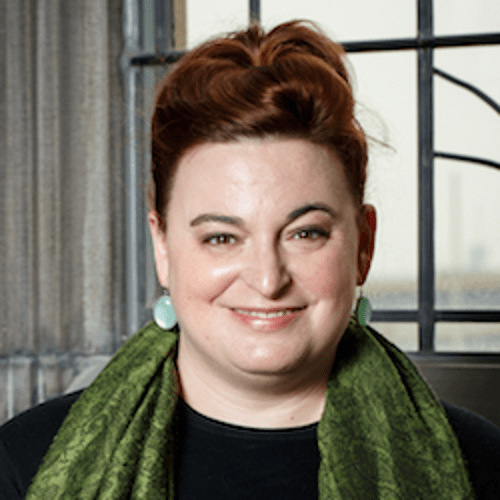October 2020 GPS Career Story: A Working Graduate Student's Quest for Diversity and Humanities Without Walls
October 20, 2020
Graduate and Postdoctoral Success

Margaret Nettesheim-Hoffman
You’ve got ~ a minute or 350 words to give us your elevator pitch. Who are you? What are you all about?
The people of ancient Greece when faced with life’s many challenges, upheavals, or personal and political decisions, sought the assistance of prophecy from the legendary Oracle at Delphi. Upon entering the temple, travelers would find the words “Know Thyself” engraved in the archway leading to the prophetess, whispering her challenge to them on the path to wisdom. Like the men and women who consulted the oracle, finding the words to describe one’s work or personality requires deep understanding of oneself. It is a very distinct difference to know who you are but another to articulate some of that essence to others. Like those ancient Greeks, I now enter the temple in hopes of distilling who I am for you. At the most foundational level, at my core, I am a wife, daughter, sister, friend, but I am also a historian, a PhD candidate, and a professional working as an advocate for graduate students and their professional career development.
I try to maintain a balance in the work I conduct between my scholarly research with the professional work I guide at the Humanities Without Walls consortium based at the University of Illinois at Urbana-Champaign and Marquette University. My dissertation explores the development of American philanthropic foundations during the Gilded Age and Progressive Eras, a period which ushered in modern forms of economics and politics. I explore this research through the lens of progressive political discourses which critiqued the power and influence of private grants to public institutions including universities. While my research focuses on a particular moment in American history, it deeply informs my work supporting the HWW consortium especially as we work with universities, foundations, and graduate students. I believe I’m able to understand graduate student needs, as one myself, but my research has taught me how to maneuver between student needs with administrative requirements necessary to developing informative programming.
Ultimately, on my path to visiting the professional “Oracle,” I have learned that our personal stories will change; they should change since the values we use to navigate our education, our research projects, and our careers are transformed by those lived experiences.
What is the most fun or interesting part of your job? What do you wish wasn’t part of your job?
I love working with graduate students, particularly students who are questioning what they ought to do with their futures or those who might be particularly worried about what to do post graduate school. Career development programming of the type I lead for HWW’s annual Predoctoral Career Diversity Summer Fellowship workshop gives PhD students tips, strategies, and hope that they have some power and agency in the construction of their futures. I have seen firsthand how this work transforms fears into hope, especially as students recognize they can truly build careers consistent with their values and with what they find meaningful in the work they do as researchers or educators.
While I love helping graduate students imagine career pathways within and beyond the academy, I often wish the work didn’t feel as if we are crushing academic dreams. Many PhD students imagine becoming future professors, teaching and advising students, or continuing to conduct the research they love. Unfortunately, the process of visualizing different career pathways often dislocates students from deeply held identities including ones like “historian” or “philosopher.” At times, this can be the most challenging component of our work.
Advice for any graduate student starting off on their first year of education?
My advice for first year graduate students is to practice self-care and to be gentle on yourself, especially in our current historical moment. Self-care can include simple measures like prioritizing sleep over studying, listening over talking in seminar class, and displaying compassion over competition. Graduate school is a marathon, not a sprint, and these simple acts of kindness for oneself and others will go a long way to assisting with both the physical and mental health required to finish the degree.
Maggie Nettesheim-Hoffman presented her GPS Career Story on October 28, 2020 at noon. Although you missed the opportunity to ask her questions, you can still watch her Career Story at the Graduate School's YouTube Channel. To find out when the next Career Story will be held, check our calendar.
Hope to see you there!


